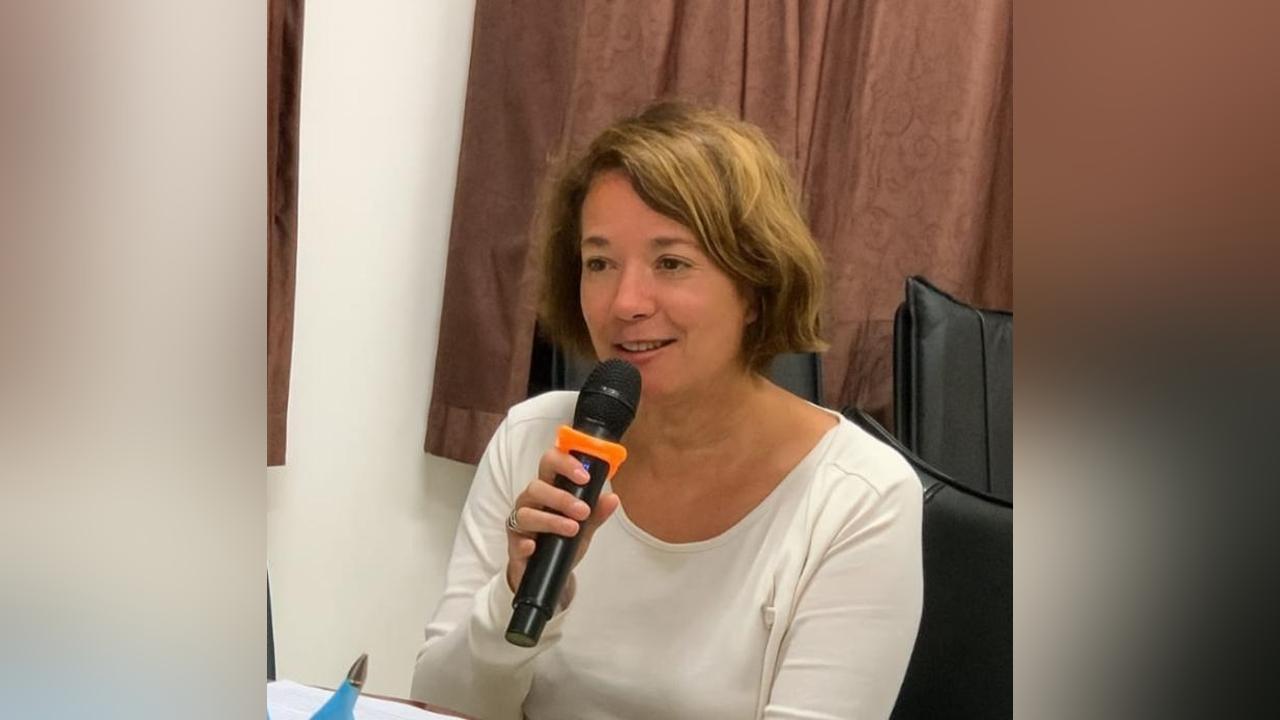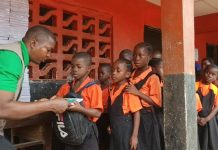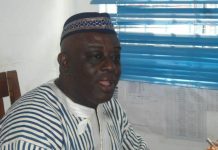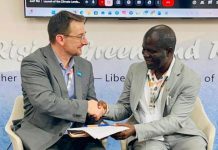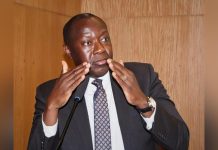Africa-Press – Liberia. The European Union (EU) has lauded Agriculture Minister Dr. J. Alexander Nuetah, for his visionary leadership and renewed political will to transform the country’s agriculture sector, while reaffirming its own commitment to supporting Liberia’s journey toward food self-sufficiency and climate resilience.
Speaking at the launch of the Investing in Livelihood Resilience and Soil Health in ACP Countries (ILSA) program in Monrovia, the EU Ambassador to Liberia, Nona Deprez, praised Minister Nuetah for revitalizing national and donor coordination in the agriculture sector.
“I really want to laud you, Hon. Minister. We recognize and appreciate your leadership in moving this sector forward and for actively pushing us, the development partners, to improve our joint actions and limit waste and duplication,” Ambassador Deprez said.
She reaffirmed that the European Union remains committed to partnering with Liberia to strengthen agricultural systems and promote sustainable growth.
“By investing in soil health and sustainable farming practices, we are not only protecting Liberia’s natural resources but also empowering farmers, especially women and youth, to lead the country’s transition toward a more inclusive and green economy,” Ambassador Deprez stated. “This project keeps alive the global climate commitments we made ten years ago in Paris.”
The €5 million ILSA programme, co-funded by the EU, IFAD, and the Government of Liberia, aims to promote soil regeneration, climate-smart agriculture, and resilient livelihoods for smallholder farmers across the country.
Ambassador Deprez’s remarks come at a time when Liberia’s agriculture sector continues to face major financing constraints, despite being the backbone of the economy. A recent World Bank report credits agriculture as the main driver of Liberia’s 4.0% GDP growth in 2024, contributing about 1.3 percentage points, mainly from strong performance in rice and rubber. Yet, the proposed 2026 national budget allocates only USD 13.6 million to the sector, about 1% of the total USD 1.2 billion budget, far below the 10% CAADP benchmark agreed by African leaders.
Of this allocation, the Ministry of Agriculture receives USD 9.54 million, the Central Agricultural Research Institute (CARI) USD 2.25 million, the Liberia Agriculture Commodity Regulatory Authority (LACRA) USD 892,118, the Cooperative Development Agency (CDA) USD 848,019, and the Rubber Development Fund just USD 132,152.
Despite employing more than 60% of Liberia’s population, agriculture continues to receive limited fiscal attention. This shortfall raises questions about the country’s readiness to achieve food security and rural transformation.
Earlier this year, Vice President Jeremiah Kpan Koung reaffirmed Liberia’s commitment to the Comprehensive Africa Agriculture Development Programme (CAADP) Declaration, describing it as a “bold and strategic framework” for achieving agricultural transformation by 2035. He emphasized that Liberia is aligning national strategies with CAADP principles by prioritizing smallholder farming, value chain development, and climate-resilient agricultural practices.
In September 2025, Liberia unveiled its ambitious USD 900 million Legacy Investment Program at the Africa Food Systems Forum in Dakar. The program seeks to transform food systems and stimulate rural growth over the next five years by focusing on rice, cassava, maize, coffee, and oil palm.
Minister Nuetah described the initiative as key to Liberia’s long-term agricultural vision:
“The Legacy Investment Program is intentional about evidence-based provision of inputs, infrastructure, technology, and services that will drive productivity across agricultural value chains, from production to processing, transport, and marketing.”
He noted that the program supports the government’s target of achieving lower-middle-income status by 2030, reducing unemployment, particularly among youth and women, and increasing per capita GDP from USD 866 in 2024 to USD 1,115 by 2030.
However, experts warn that Liberia’s dependence on donor funding for core agricultural activities poses a sustainability challenge. Projects such as RETRAP, STAR-P, and ILSA—funded by partners like the World Bank, AfDB, and IFAD—continue to drive progress, but without increased domestic funding, their impact could be short-lived.
As the 2026 draft budget is debated at the Legislature, stakeholders are calling on lawmakers to increase agricultural financing in line with the National Agriculture Investment Plan (NAIP) and CAADP commitments. A stronger budgetary commitment, they argue, would ensure that agriculture becomes not just a sector of survival, but a driver of sustainable and inclusive growth.
As the 2026 draft national budget heads to the Legislature for debate, stakeholders are calling on lawmakers to prioritize agriculture in line with the National Agriculture Investment Plan (NAIP) and CAADP commitments. A well-financed agricultural budget, they argue, would not only accelerate productivity and rural infrastructure but also lay the foundation for sustained, inclusive economic growth.
For More News And Analysis About Liberia Follow Africa-Press

